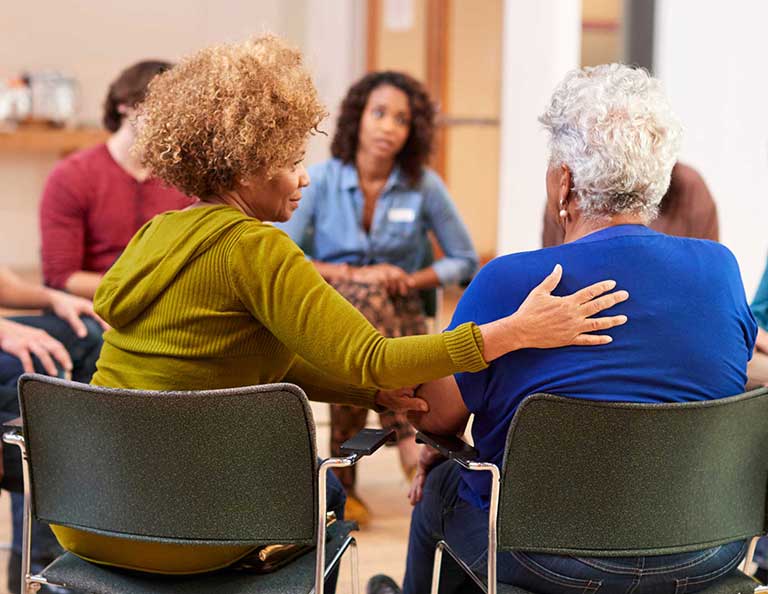Loss is a part of life. We all face losing someone we love, whether from death, a breakup, or just growing apart from an old friend. It’s not uncommon to experience this a lot during adolescence as friendships and relationships shift, loved ones age, and tragedies occur. Your generation has also faced more death and loss than many other generations when they were your age. You are growing up during a pandemic, regular mass shootings, and increased rates of youth suicide.
Young people say losing someone they care about feels like…
- “I lost a piece of me I never know I had”
- “The air’s been stolen from my lungs”
- “I lost everything”
- “I must have done something wrong to deter them”
- “An out of body experience you have to live through”
- “Crushing all of the innocence I took for granted”
- “Like a shadow I can’t reach”
What is grief?
Grief is the reaction you have after experiencing a loss. It often impacts your mind, body, and spirit. Grief also refers to the process of coping with a loss: dealing with tough emotions, coming to terms with the loss, and finding ways to move forward. This doesn’t mean forgetting about loved ones who have passed away or are no longer in your life—it means figuring out how to remember them and adjust to what your life looks like without them.
The pain of grief is typically most intense right after the loss, but some people first feel shock or numbness before reality sinks in. People often experience grief in “waves”—maybe you have a great weekend and then see something that brings all of the hurt back, or you feel like you’ve mostly healed and then the one-year anniversary comes and you can’t stop crying. Either way, you’re bound to have some good days and some really tough days. There’s no one way to grieve or limit on the amount of time you’re allowed to feel this way.
Emotions you may experience
- Denial
- Fear
- Confusion
- Shock
- Sadness
- Loneliness
- Anger
- Embarrassment
- Hopelessness
- Guilt
Physical sensations you may experience
- More likely to get sick (lowered immunity)
- Body aches and pains
- Increased or decreased appetite
- Nausea
- Stomachaches
- Headaches
- Fatigue and/or difficulty sleeping
- Dizziness
Tips for processing grief
- Express your feelings. As much as you might wish it would, keeping the pain inside of you doesn’t make it go away. Talk to someone you trust, write, draw, look at photo albums, or tell stories about your loved one.
- Find meaning in the relationship. Losing someone you love can be so painful that you question if it’s worth it to get that close to someone ever again. Spend some time reflecting on the positives of the lost relationship—what did they mean to you? What did you learn from them? Are there things you appreciate more now?
- Move your body. Playing a sport, taking a walk, stretching, or even just dancing around your room to your favorite songs can help release some stress and sadness.
- Be gentle with yourself. Everyone grieves differently and on their own timeline. Try not to compare your healing to others’ journeys or have expectations about when you’ll be “over it.”
- Find little moments of happiness. It can be confusing to experience joy after a big loss—it might even feel wrong, like you shouldn’t be okay. But happiness fuels hope and can help you start to move forward even though life looks different.
- Don’t be afraid to ask for help. Many people find therapy or support groups helpful in dealing with loss, no matter where they are in the grieving process. It’s especially important to seek help if you’re thinking about hurting yourself or someone else.
It can be hard to recognize the difference between grief and some mental health conditions, like depression or PTSD. If a few months have gone by and you still feel how you did at the beginning of your grieving process, or like your grief is making it hard to keep up with school, friends, and hobbies, take a mental health screen at mhascreening.org.
If you or someone you know is struggling or in crisis, help is available. Call 988 or chat at 988lifeline.org. You can also reach Crisis Text Line by texting MHA to 741741.


